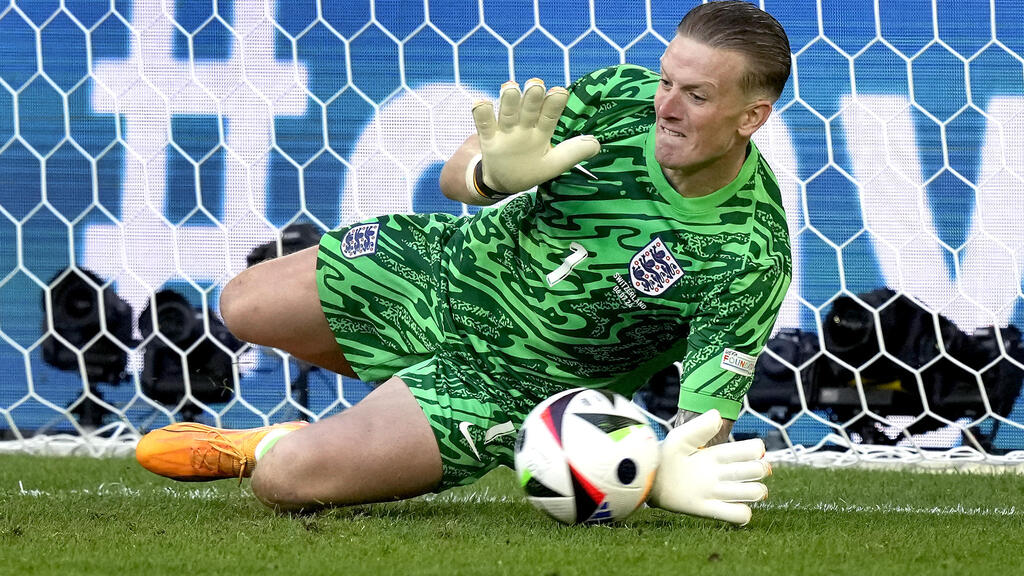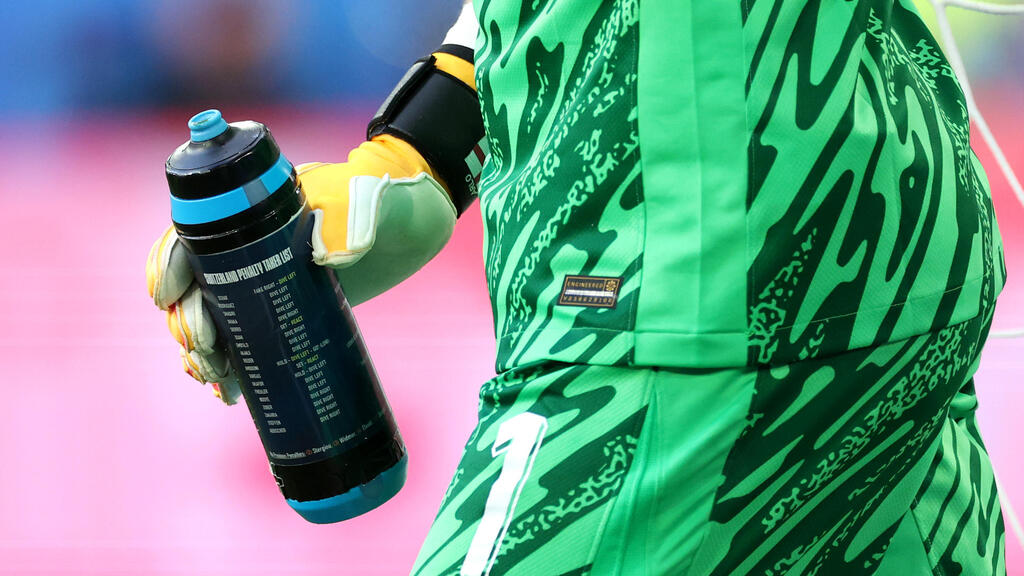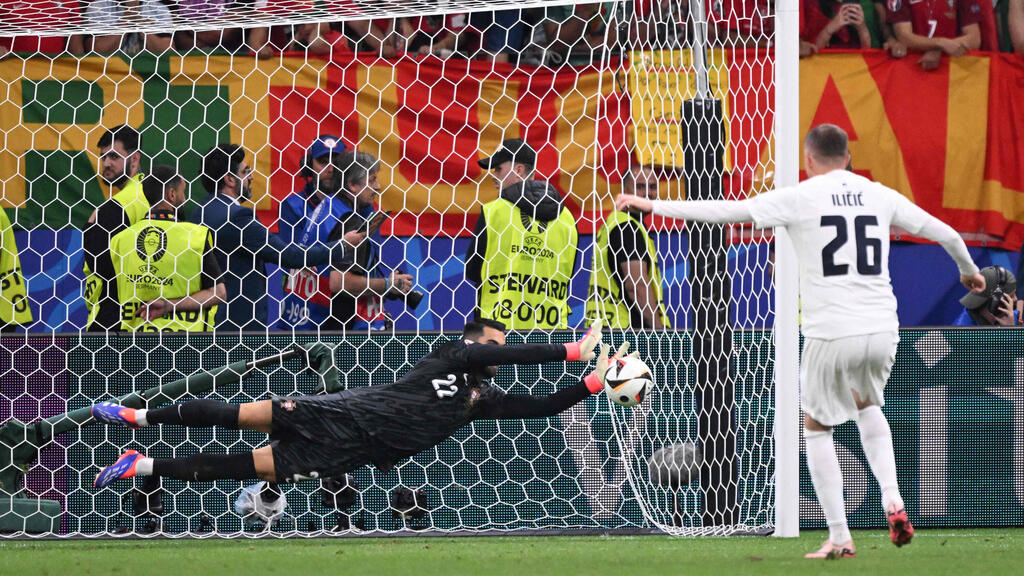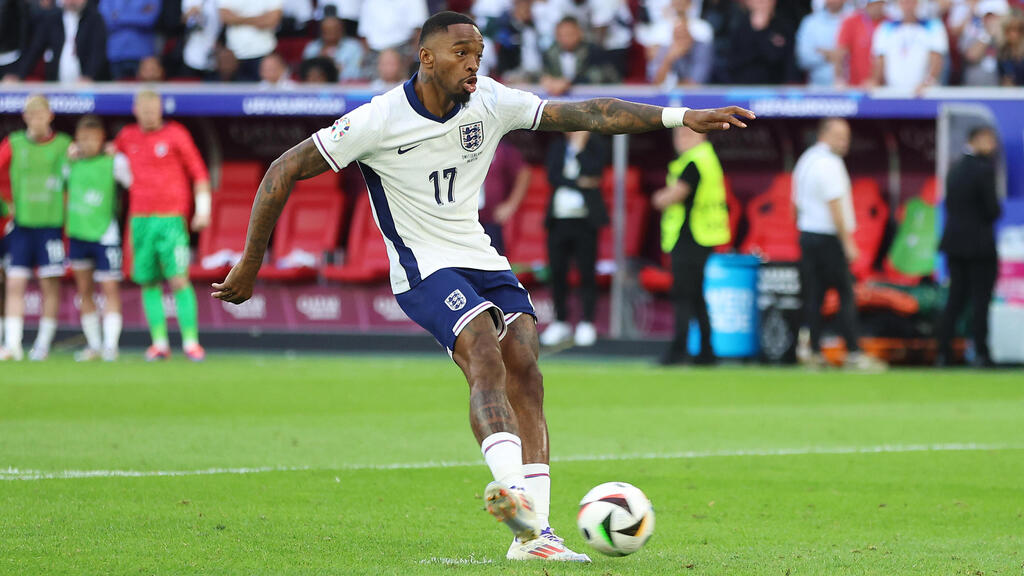"Jump left." These two words were taped on Jordan Pickford’s water bottle, next to the name of Swiss defender Manuel Akanji. The England goalkeeper jumped left and easily saved Switzerland's first penalty in the shootout the other day.
It was the only one of the nine shots taken that didn’t go in, leading England to a 3-5 victory and a spot in the Euro semifinals. But Akanji wasn’t the only one: viral photos showed that Pickford’s bottle featured all the opposing players with tailored instructions like "fake right, jump left."
Pickford has saved at least one penalty in each of the last four shootouts England has faced in major tournaments, known for his meticulous preparation and mental toughness. (In the last Euro final, where England ultimately lost to Italy in penalties, he was captured saying to himself, "No problem," right before stopping Jorginho’s shot.)
However, Pickford is not unique: Euro 2024 reinforces the trend that has grown since the turn of the millennium – the necessity of thoroughly preparing your team for penalty shootouts. This means adopting a scientific mindset, and professional analysis, and leaving behind the phrase "we didn’t prepare for penalties." A coach who says that now is either lying or incompetent.
The expansion of the Euro to 24 teams starting with the 2016 tournament, along with the addition of the round of 16, changed European thinking. This is consistently seen in the World Cup: among the five tournaments since 2006, three had four knockout stage shootouts, only in 2010 did it temporarily drop to two such games, and the last World Cup set a record with five shootouts, including the final between Argentina and France. The number of shootouts in the Euro was always standard, about two per tournament, but in 2016 there were three, in 2020 four, and now we already have three more, even before the three semifinals and finals, which are prone to this fate. There's no avoiding it – more stages mean more penalties.
Of course, this isn’t the only reason for the increase. In this Euro, for example, one key factor leading to 120 minutes of stalemate is cautious football. England and France are the two standout giants playing disappointingly conservative football, to say the least. Since the group stage, even in matches where they were favorites on paper, they adopted an approach that often seemed cowardly, lacking initiative, aimed more at not losing than at winning.
Accordingly, they were involved in two of the three matches that ended in penalties and reached the semifinals. Portugal, sacrificing potential on the altar of admiration for Cristiano Ronaldo, faced this situation twice after dreadful 0-0 games. They didn’t survive the second time. In the matches of these three teams, it seemed that reaching penalties was perfectly fine by them, as long as they didn’t risk an earlier loss.
There’s also the issue of parity that must be acknowledged in this Euro. More than ever, the level of most teams was high – both in terms of squad quality and execution – which extended into the later stages. Every opponent is dangerous, and ultimately, it’s hard to achieve victories when the tactical battle is balanced and the opposing coach knows all your tricks. In the past, this was the underdog's strategy – a 120-minute bunker to reach penalties. Now it’s no longer viable, as proven in the Euro repeatedly, because you can’t withstand an offensive onslaught, but instead, we have teams simply unable to defeat each other. This is a sign that the coaches are the prominent figures in this Euro.
As such, just as you can’t enter a major tournament today without order in the team and high physical fitness, you can’t approach penalties with a "whatever happens, happens" attitude. Pickford isn’t the only keeper preparing cheat sheets on his bottle, and England is also preparing for the other side of the shootout: pundit Gary Neville said that in his time, they simply chose the statistically best kickers in the squad, which didn’t work. Gareth Southgate’s routine at the end of each practice is to take three different players and have them take three penalties in a quiet corner of the field, executed as cleanly as possible to sharpen their skills. The other day, Ivan Toney’s shot against Switzerland was a masterpiece of confidence, a ball into the corner with a stoic face, not taking his eyes off goalkeeper Yann Sommer.
In the last World Cup, Louis van Gaal, who coached the Netherlands, had a secret weapon: he added volleyball coach Peter Murphy to the staff, dubbed the "penalty killer." Murphy's role was to teach the goalkeepers how to unnerve the kickers. Additionally, Dutch scientists analyzed the best way to take a penalty, claiming that with targeted training, any player could become a perfect kicker. This is also seen at the club level: Liverpool has been working for three years with a team of German neuroscientists who help players achieve ideal mental readiness for penalty shootouts by measuring brain activity and creating similar pressure situations. In the two finals, the team reached in 2022 that went to penalties, the players scored 17 out of 18 shots.
“There are so many things you can do to prepare your team for penalties, to train them for penalties, to help your players and team cope with the pressure of penalties,” says Geir Jordet, professor at the Norwegian School of Sport Sciences and author of the recently published book, “Pressure: Lessons from the Psychology of the Penalty Shootout.”
“You can do this as an individual, as a team, as a manager,” he said.
The theory that penalty shootouts are a “lottery” is well worn and oft-repeated, with recently departed Chelsea manager Mauricio Pochettino saying just that in December after winning a cup game.
Johan Cruyff, the late Dutch maestro, gave short shrift to the idea that teams can prepare for spot kicks.
“Taking penalties in training is useless,” he said in 2000. “The penalty is a unique skill outside of football.”
Cruyff subscribed to the philosophy that a player can never simulate the pressure of a penalty shootout — that initial wait in the center circle, that long walk to the penalty spot, those few seconds face-to-face with the goalkeeper — on the training field.





